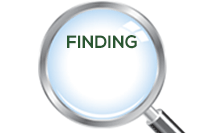Auto
 Baby
Baby
 Bluetooth Speakers
Bluetooth Speakers
 Clothing
Clothing
 Combo Kits
Combo Kits
 Home
Home
 Laser Printers
Laser Printers
 Textbooks
Textbooks
 Tools
Tools
 Toys
Toys
 Running Shoes
Running Shoes
 Sports
Sports
 Video Projectors
Video Projectors
 Watches
Watches
 Baby
Baby
 Bluetooth Speakers
Bluetooth Speakers
 Clothing
Clothing
 Combo Kits
Combo Kits
 Home
Home
 Laser Printers
Laser Printers
 Textbooks
Textbooks
 Tools
Tools
 Toys
Toys
 Running Shoes
Running Shoes
 Sports
Sports
 Video Projectors
Video Projectors
 Watches
Watches
Find it Cheaper

|
A Code of Ethics and Professional Conduct for National Security Agency (NSA) Intelligence Professionals - New Mechanisms to Strengthen Employee Accountability and Trust to Improve Workforce Resilience - U.S. Government, Paperback
Independently published
|
FindersCheapers strives to maintain the accuracy of product and pricing information displayed on our site, but we do not guarantee the accuracy of the information.
If there is a pricing, coupon, or other information discrepancy between FindersCheapers and a merchant's site then the information on the merchant's site will apply. FindersCheapers cannot be held liable for any actions
taken based on the information provided and FindersCheapers shall not be held responsible for any loss or damage resulting from business conducted with companies listed on FindersCheapers.
FindersCheapers receives compensation from all merchants whose products are displayed. Refer to our Conditions of Use and About Us pages for complete details. To report a pricing error,
click here.
 Home
Home


